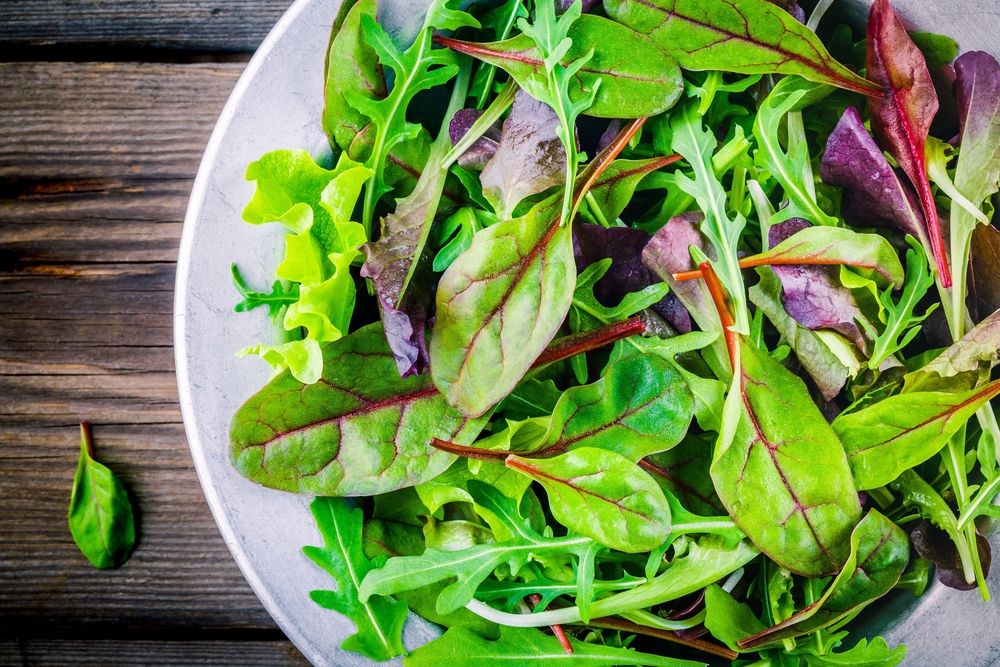Inflammation occurs because white blood cells and the substances they produce are trying to protect you from an infection. They increase blood flow to the affected area, which can create warmth, swelling, and pain. They do so to form a “battle zone” to fight foreign bodies.
Unfortunately, this process can sometimes go haywire. Your blood cells may interpret your own body as a foreign threat and proceed to attack it. This happens with some types of arthritis. (Learn More — What Is Inflammation?)
Acute inflammation is common with injuries, and it usually doesn’t last long. It is best to rest the affected area and apply ice. Medications may sometimes be necessary, such as NSAIDs like Tylenol and Advil. (Learn More — Acute Inflammation)
Chronic inflammation is usually more serious, and may be caused by a medical condition that affects a given area for months or more. In these cases, you should get a proper diagnosis from a doctor and follow their advice closely. (Learn More — Chronic Inflammation)
Gastrointestinal inflammation can also be quite uncomfortable. Diet can be an important factor here, so you should consider cutting triggering foods, such as fried or sugary foods. Increasing your consumption of nutrient-rich foods, like leafy greens and nuts, can help. Eating a more wholesome diet can also reduce obesity, which can cause inflammation problems in itself. (Learn More — Anti-Inflammatory Diet)
Some people use herbal supplements to alleviate inflammation, but their efficacy is debatable. While some supplements, like ginger, may be helpful or at least generally harmless, others like hyssop could potentially be harmful. (Learn More — Herbal Supplements)
What Is Inflammation?
Inflammation occurs when your white blood cells and the substances they produce are trying to protect you from infection. The chemicals released by your white blood cells increase blood flow to the affected area, which can cause swelling, warmth, and potentially pain.
While inflammation is uncomfortable, it is sometimes a necessary component of healing. However, sometimes your body gets confused. It may react as if normal tissue is infected and treat this normal tissue as a foreign body. This is the case with autoimmune diseases, including rheumatoid arthritis.
There are many conditions, both temporary and chronic, that cause inflammation. Some, like sinusitis, may be uncomfortable but are generally not serious. Others, like tuberculosis, can be very serious and warrant an immediate visit to a doctor.
If your symptoms are serious or you don’t have any explanation for why you are suffering from inflammation, you should see a doctor. This is especially true if the inflammation is accompanied by other symptoms.
Some people have diagnosed chronic conditions, such as arthritis, or inflammation due to a past minor injury. Provided your symptoms are not getting worse, it may be okay to treat your inflammation with home remedies.
Acute Inflammation
Acute inflammation occurs in response to bodily trauma (including surgery), and generally occurs within two hours following the trauma.
For best results, you should begin treating your inflammation as soon as you notice it. Try the following at-home treatments:
- Rest: Do not strain the injured area: For example, do not walk on a swollen foot unless absolutely necessary. This can prevent the injury from worsening and gives it time to heal.
- Ice: Applying ice can reduce swelling, although excessive ice application can damage the skin. It’s best to put a towel between your skin and the ice, placing it on the injury for about 20 minutes. You should then
 wait at least 40 minutes before applying any more ice.
wait at least 40 minutes before applying any more ice. - Compression: Special wraps can be purchased to treat swollen injuries, helping keep swelling at bay. While ankle and foot compresses are most common, they exist for other areas of the body as well.
- Elevation: While not always possible, it is ideal for your injury to be elevated slightly so it rests above your heart. Your heart pumps blood throughout your body, and excess blood flow is a key component of inflammation; elevating the affected area above your heart will make it more difficult for blood to reach due to gravity.
- NSAIDs: Nonsteroidal anti-inflammatory drugs (NSAID), which include common drugs like Advil and Tylenol, can help reduce swelling. Do not use these drugs for more than a couple of days before talking to a doctor. Excessive use of these drugs can negatively impact your health.
Generally, inflammation should subside within a day or two. If it doesn’t go away, or if your symptoms seem severe, you should see a doctor. You may require more serious medical attention and potentially prescription drugs, such as corticosteroids, to reduce your swelling and control your pain.
Chronic Inflammation
Chronic inflammation is inflammation that lasts months or years. It is almost always caused by an underlying medical condition. If you suffer from inflammation for long periods of time, do not attempt to simply solve the problem with home remedies until you get a proper diagnosis from a doctor.
The pain caused by chronic inflammation can sometimes be severe, in which case you may need to adjust your lifestyle to control your pain. Many remedies that help with acute pain can also treat chronic pain, and your doctor may prescribe more serious medications to aid you as well.
Many people feel hopeless when they have chronic pain. But with a combination of lifestyle changes and the help of a doctor, you can generally control a great deal of your symptoms, if not all of them. Don’t lose hope if it takes multiple attempts to find the right solution for you.
At-home remedies aren’t always enough for acute inflammation, but this is more often the case with chronic inflammation. Whatever your condition, keep your doctor informed about what you’re doing at home so they can make sure it does not interfere with any prescribed treatment. Don’t be afraid to ask for tips from your doctor about how to better deal with your symptoms.
Anti-Inflammatory Diet
Some food choices are connected to inflammation, especially of the bowels. This can be very important for people with irritable bowel syndrome (IBS) who already chronically deal with gastrointestinal inflammation.
Some foods known to potentially cause inflammation include:
- Refined carbs, such as pastries and white breads
- Fried foods
- Sugary beverages, including soda
- Lard, margarine, and shortening
- Red meat, such as beef
Obesity is also linked to problems with inflammation. Combining problematic foods with obesity will give you an even greater chance of developing such problems. The above foods tend to be unhealthy, so cutting back may help you lose weight if you are also struggling with obesity.
On the other hand, there are anti-inflammatory foods that can help reduce inflammation and settle your bowels, including:
- Olive oil
- Nuts
- Fatty fish, such as salmon and tuna
- Certain fruits, including oranges, cherries, blueberries, and strawberries
- Leafy green vegetables, including spinach and kale

It can be a good idea when making significant diet adjustments to talk with a doctor or other nutrition specialist. Make sure you build a sustainable, healthy diet that still accounts for all your nutritional needs.
Herbal Supplements
A variety of herbs, many of which can easily be obtained without a prescription, are often used to help with certain kinds of inflammation.
Even though the research isn’t extensive, these supplements are considered safe.
- Ginger: This natural remedy is often used to treat a variety of gastrointestinal problems and even rheumatoid arthritis pain. While you should certainly still see a doctor if you frequently deal with these issues, ginger itself has very few downsides and is worth trying.
- Turmeric: Similar to ginger, turmeric (and curcumin, a derivative) is sometimes used to treat inflammation. Research is ongoing, and its use is less common than ginger, but it should generally be safe to use with one important exception.
Turmeric can stimulate the uterus if taken in medicinal quantities. While consuming it as a basic spice in food is okay, do not take large amounts of turmeric while pregnant.
Some herbal remedies are risky enough that you should ask a doctor before trying them. Do not use any of the following without first talking to a doctor:
- Hyssop: Sometimes used in herbal mixtures to treat lung conditions like inflammation, hyssop is under-researched and shown to cause life-threatening convulsions in laboratory animals. With known dangers and poor data to support its medicinal value, do not use hyssop without discussing it with a licensed doctor, regardless of any claims you read online.
- Devil’s claw: A South African herb, devil’s claw is related to sesame plants. Unlike hyssop, it is not associated with serious health risks. Instead, it simply does not have much research supporting its use, although the research that does exist suggests it may have anti-inflammatory properties. It is worth discussing with a doctor if you should try it.
Cannabis remains a controversial remedy for inflammation. Cannabis, which contains a cannabinoid called cannabichromene, has been shown to have anti-inflammatory properties. However, this substance is not legal in some states, and it is still illegal at the federal level.
References
What Is Inflammation? (September 13, 2018). WebMD.
Everything You Need to Know About Inflammation. (November 24, 2017). Medical News Today.
Foods That Fight Inflammation. (November 7, 2018). Harvard Health.
Over-the-Counter Pain Relievers. (October 12, 2018). MedlinePlus.
Acute Inflammation. Foot Health Facts.
Irritable Bowel Syndrome: Symptoms & Causes. (March 17, 2018). Mayo Foundation for Medical Education and Research (MFMER).
Turmeric. WebMD.


 wait at least 40 minutes before applying any more ice.
wait at least 40 minutes before applying any more ice.